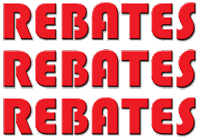A Method to Your Madness
 |
| Don't let the idea of a sales process drive you mad! |
Skill Two: Process
In an earlier posting, I noted I felt planning was the
single most critical skill for sales people.
Think about this: the power to anticipate and prepare for the future is
a major differentiator of mankind. One
of the first measures of civilization comes in the form of the calendar. The Egyptians, Mayans, Phoenicians, Aztecs,
and the hillbillies from which the Hurtte clan emerged, all had calendars. They developed plans, but that’s not
enough.
Carrying out a plan in a systematic method is process. And to really be a process they must contain
three ingredients:
·
Documentation – Without some written
record of how we handle thing,s it’s far too easy to stray from the plan.
·
Measurements and Metrics – These assist
in understanding changes in our performance over a longer period of time.
·
Coaching Points – Even superstar athletes
have coaches. If you don’t have a method
for getting an outside perspective, you may be missing an important ingredient
of success.
Let’s switch gears and look at process in a completely
different field. McDonald’s has a
process for cooking fries. They
carefully define their procedure; they measure against the procedure and
constantly look for ways to improve.
Arguably, it isn’t the quality of their food that keeps people coming back,
it is the consistency. They, like many
businesses, realize their customers have an appreciation for consistency. A process keeps you consistent and guides
your improvement.
A process for those of us in sales can be everything from
how consistently we return phone calls to how well we capture customer
information to how well we hand off information to our inside sales team.
Here is a guide to process scale. Again, it works on a scale of 1 to 10, with 1
being the lowest score and 10 being near perfection. Select the number which most closely ties to
your own work.
1 – You always have a notebook with you when you go out on a
call.
3 – You capture all incoming phone messages and return the
calls within a consistent time frame. This
includes continuing to call back until you have made contact with the person
calling.
5 – You measure the number of sales calls you make each
week.
7 – You measure the value of active quotations, new quotes
and other important information.
10 – Other members of your team know exactly how you will
provide them information in order to better serve your customers
The very best sales people involve others in their
process. Like the coach of a sports
team, they outline expectations, measure outcomes, and often gently coach their
support people along the way to improve customer interactions.
Many salespeople question the value of written documentation
for their process. To this end, your
process need not be laid out in perfect form.
A simple flow chart, a few bullet points, a notebook with your current
actions will be sufficient as a starter.
If you don’t have something on paper (or electronic device), straying
from your ideal plan is easy to justify.
We suggest you take just a few minutes to think about these points. What is your process for the following:
·
Introducing your company to a new customer?
·
Following up on leads provided by a vendor?
·
Locating new contacts at an existing customer?
·
Handling quotations?
·
Gathering information on a customer?
·
Introducing support people to your customer?
·
Returning phone calls?
·
Measuring the potential of a new customer?
·
Identifying competitors within your customers?
We would love to hear more about your own process.



Comments